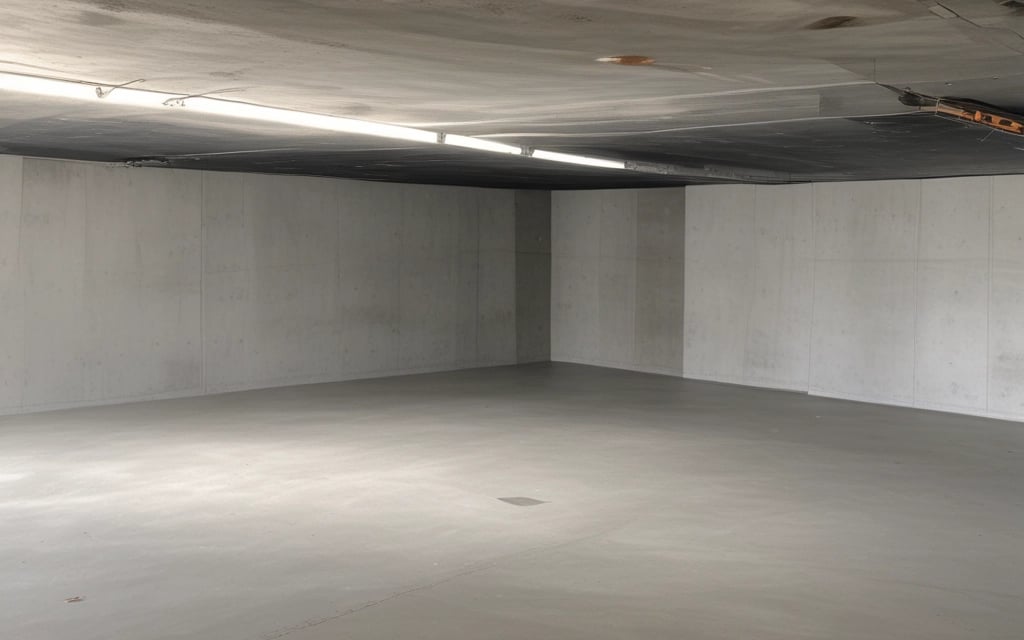Basement Foundations & Walls in Madera, CA
Basements aren’t common in the Central Valley—but when you need one (or need serious below-grade walls), the details matter: soils, drainage, waterproofing, and seismic steel. Madera Concrete Pros designs, engineers, and builds basement foundations and walls that stay dry, straight, and code-compliant—without disruption to the rest of your home.
What we build
New basement foundations for custom homes, ADUs, and additions (full, partial, daylight/walkout).
Basement walls (poured concrete, CMU, ICF, or shotcrete) from 4' to 12'+ heights.
Underpinning & basement lowering under existing homes (select projects).
Retaining walls integrated with basements and hillside lots.
Waterproofing & drainage systems (membranes, drains, sumps, dewatering).
Egress windows & areaways, code-compliant for bedrooms and safe exit.
Seismic upgrades—hold-downs, anchor bolts, shear walls, and rebar densification.
Crack repair & leak remediation (injection
Our basement build process (step-by-step)
Site & soils review – measure, check falls, utilities, and access; coordinate a soils report if you don’t have one.
Engineering & permits – we work with a licensed structural engineer to design wall thickness, rebar schedules, footings, and seismic details; we submit plan sets and assist with permitting.
Excavation & shoring – precise dig, spoil management, temporary shoring where needed, safe access ramps.
Footings & slab prep – trench and spread footings with keyways; capillary break, 10-mil vapor barrier, and insulation where specified.
Forming & steel – formwork or ICF blocks; placed per plan with bar laps, hooks, and chair spacing verified before pour.
Concrete placement – pump placement, vibration/consolidation, wet-set anchor bolts, embeds for stairs/rails.
Waterproofing & drainage – positive-side membrane, protection board, footing drains to daylight or sump, backfill in compacted lifts.
Interior slab & finishes – trowel or burnished slab, curb/step forms, stub-outs for future plumbing, and penetrations sealed.
Handover – inspection close-outs, maintenance guide, and warranty documentation.
Wall systems we offer (and when to use them)
Poured concrete (most common): clean finish, high strength, ideal for 8"–10" walls with complex rebar.
CMU block (reinforced & grouted): cost-effective in straight runs; great for utility basements.
ICF (insulated concrete forms): energy-efficient, fast to erect, excellent for conditioned living space.
Shotcrete with rebar cage: perfect for tight sites and curved or high retaining conditions.
Keeping basements dry (the non-negotiables)
Positive-side waterproofing membranes (not just damp-proofing).
Footing drains wrapped in filter fabric with washed drain rock.
Sumps with check valves and (optionally) battery backup where daylighting isn’t possible.
Grading that pushes water away from the foundation, plus downspout management.
Detailing at penetrations, cold joints, and step-downs to stop seepage before it starts.
Seismic & structural details (Central Valley reality)
Engineered rebar schedules (bar size, spacing, vertical/ horizontal mats).
Hold-downs, anchor bolts, and shear wall nailing per plan to tie the superstructure.
Thickened key footings and pilasters at long runs or opening jambs.
Construction joints and water-stops placed with intent (not guesswork).
Typical cost drivers (we quote line-by-line)
Soil type, water table, and dewatering needs
Access, export/import of spoils, and shoring complexity
Wall height/thickness and rebar density
Waterproofing system grade and insulation requirements
Egress wells, interior stairs, and utility rough-ins
Ballpark: in our area, an unfinished basement shell (excavation + walls + slab + waterproofing/drainage, no interior finishes) often lands between $60–$120 per sq ft, depending on soils, depth, access, and engineering. We’ll confirm the range after a site visit and soils review.
Basement vs alternatives
Crawlspace: cheaper, easier access to services, but no conditioned floor area.
Slab-on-grade with stem walls: fast and cost-effective on flat lots; minimal storage.
Daylight/walkout basement: best of both—usable space with natural light on sloped sites.


FAQs
Do basements make sense in Madera?
On flat, high-water-table lots, basements can be costly. On sloped sites (daylight/walkout) or where you need protected storage/conditioning, they’re a smart solution when engineered and drained correctly.
How tall are the walls?
Most living-space basements are 8'–10' clear. We build taller with engineering.
CMU, poured, or ICF—what should I choose?
For conditioned space and energy performance, ICF is excellent. For versatility and finish quality, poured is king. CMU works for utility/storage rooms and straight runs.
Can you add a basement under an existing home?
Sometimes—via underpinning and staged excavation. It’s case-by-case after structural review.
What’s the timeline?
Simple daylight basements can be 4–8 weeks from dig to shell; complex digs or shoring extend timelines. Your proposal includes a realistic schedule.
Do you waterproof or just damp-proof?
We waterproof below-grade living space by default and specify damp-proofing only where appropriate (e.g., non-habitable retaining conditions).
Service area
Madera, Madera Ranchos, Parkwood, Bonadelle Ranchos, Merced, Parksdale, Chowchilla, Kerman, Clovis, Fresno, Sanger, Biola, Rolling Hills—and nearby communities.
Get a same-day, line-item quote
Call 559 254-0253, email info@maderaconcretepros.com, or request a visit. We’ll review soils, measure, and send a clear scope with pricing options and a firm start date.
—
Madera Concrete Pros
2230 W Industrial Ave, Madera, CA 93637
Phone: (559) 254-0253
Email: info@maderaconcretepros.com
